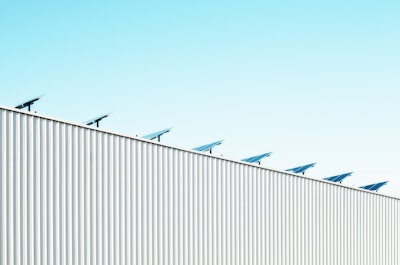
Johnson Controls released the U.S. results of its 2019 Global Energy Efficiency Indicator survey. The study found that 75 percent of surveyed organizations plan to increase their investment in energy efficiency, renewable energy and smart building technology, a 16 percent increase over 2018. The research suggests that sustainability is a key contributor to this increase - 80 percent of organizations with energy or greenhouse gas reduction goals plan to increase investment next year, versus 37 percent without goals.
“This is the largest annual increase in planned investment in over a decade,” said Clay Nesler, vice president of global sustainability and regulatory affairs. “Investment in smart and sustainable building technologies not only addresses urgent climate challenges but also improves comfort, health, safety and affordability for building occupants and communities.”
The study, now in its 13th edition, surveyed 400 energy and facility management executives in the United States to understand current and planned investments, key drivers, and technology trends supporting smart, safe and sustainable buildings. Over half of participants believe that reducing energy costs, increasing energy security and reducing greenhouse gas emissions are critical factors to consider when making investments. In addition to these drivers, 87 percent of organizations indicated that resilience is very or extremely important when considering future energy and building infrastructure investments, compared with 68 percent the previous year.
Traditional energy efficiency measures top the list of future investments with over two-thirds planning to invest in energy education programs, HVAC equipment and building controls improvements. Despite the common perception that building owners typically run building systems to failure, 42 percent of organizations updated building controls and 36 percent replaced HVAC equipment before end-of-life last year.
The survey also indicates a rising trend towards green and zero carbon buildings:
- 85 percent of organizations plan to have at least one certified green building compared with 72 percent last year, while 62 percent are willing to pay a premium for space in a certified green building.
- 63 percent of organizations say they are very or extremely likely to have one or more facilities that are nearly or net zero energy or carbon in the next ten years, up from 58 percent in the previous year.
- 61 percent of organizations surveyed invested in on-site renewable energy in 2019, while 34 percent of organizations invested in the replacement of fossil fuel heating equipment with heat pump technology last year.
There was continued strong interest and investment in smart buildings last year:
- 71 percent of organizations invested in building control system improvements and over half have implemented an enterprise-wide building management system.
- Over half of organizations invested in the integration of security, fire/life safety systems and lighting systems with other building technology systems last year, with another third investing in energy information management software.
- Cybersecurity, Internet of Things (IoT), data analytics/machine learning, data privacy and advanced controls were identified as having the greatest impact on the implementation of smart buildings over the next five years.

















